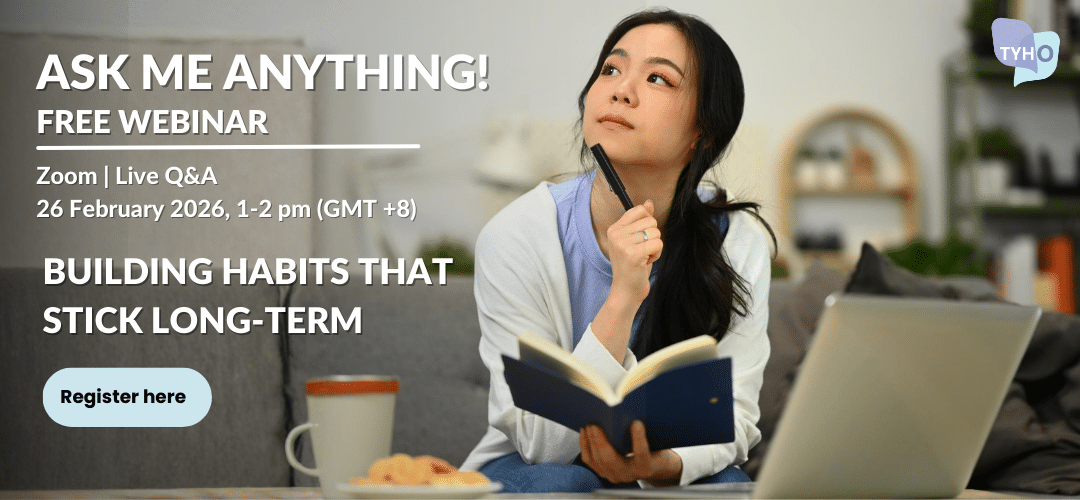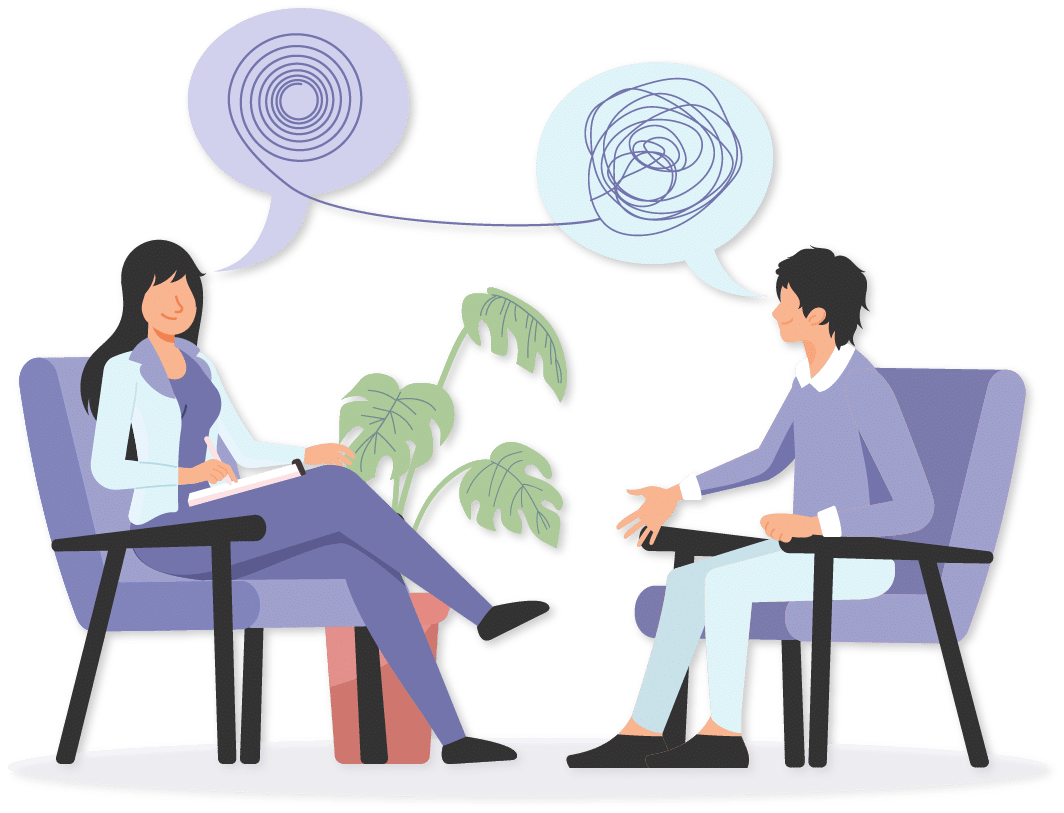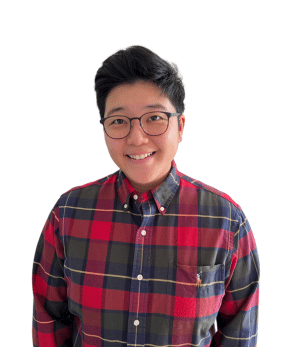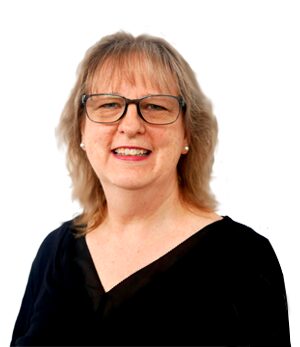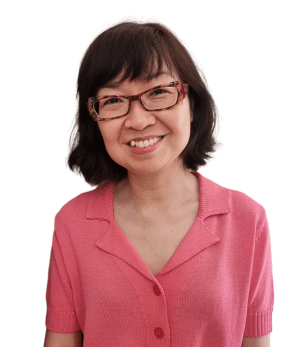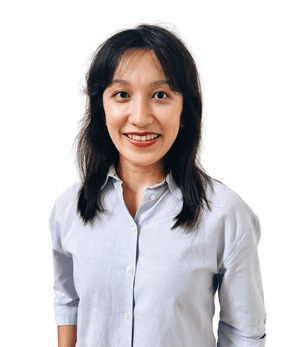Counsellors Worldwide
Find someone to talk to today!
At TYHO, we go above and beyond to ensure you receive the highest quality service. In fact, 98% of our clients would gladly recommend TYHO to others.
Carefully Curated Counsellors
How Counselling Works on TYHO

Choose Your Therapist
Browse through a diverse group of Therapists, and review their profiles to find the best match.
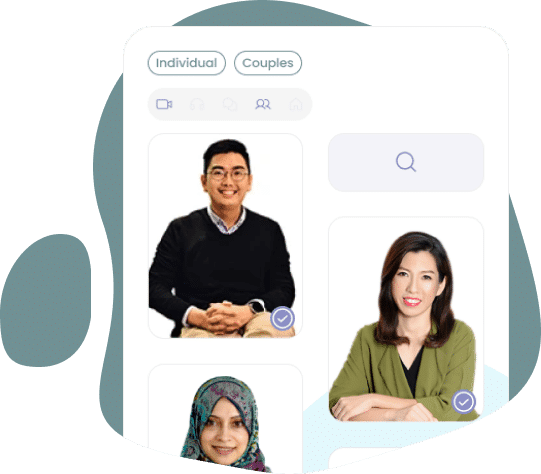
Book a Session
Select the type of service, medium, and date and schedule a session conveniently.

Start Therapy
Join online video or audio sessions, depending on your preferred level of interaction.
Why Counselling With TYHO?
Connect with highly qualified, experienced, and
empathetic counsellors
Unmatched Therapeutic Expertise
Our counsellors are highly qualified with a proven track record in their respective fields.
Flexibility in Scheduling
We work around your time and provide sessions whenever you prefer, even on weekends.
Satisfaction Rate
88% of our clients are satisfied and find our services to be the defining feature.
User-Friendly Online Platform
Our interface makes it easy to access therapy sessions from the comfort of your own home.
Multilingual Counsellors
Find counsellors who speak multiple languages and understand your cultural background.
Privacy and Confidentiality
We take robust measures to secure and protect your personal information thoroughly.
Introduction to Counselling
What is counselling?
Counselling is a collaboration between you and your counsellor during therapy, where you explore ways to manage your emotions or difficulties better. These may include delving further into issues to understand them better or picking up new skills.
TYHO’s counsellors are professionals with relevant qualifications in counselling (all our Professional Counsellors have at least a Master’s in Counselling degree) and are highly skilled in applying integrative therapies to support people working through their personal and emotional issues.
How do I know whether to go for counselling?
Are you unsure about whether you need counselling? Here’s a simple way to find out.
Take a moment to reflect on your emotions. Are you experiencing persistent feelings of sadness, anxiety, or anger that affect your daily life? If so, counselling can provide valuable guidance and tools to help manage these emotions effectively.
Take a closer look at your coping mechanisms. Are your current strategies unhealthy or ineffective? Counselling can help you develop healthier coping mechanisms that promote your overall well-being.
Lastly, trust your intuition. If something feels off or you’re feeling stuck and unable to move forward, you can try counselling to gain clarity and a fresh perspective.
What are the common goals of counselling?
The reason for seeking counselling may differ depending on the issues and objectives of the clients. Therapists help clients recognise and make sense of their thoughts, feelings, and behaviours so they may resolve their issues and experience positive changes in their lives. Some common aims of counselling are as follows:
1) Work on challenges and explore the next steps
In the initial sessions, you may gain deeper insights into your issues by identifying patterns in how you think, feel, and act with your therapist. They can then weigh their options and suggestions and decide what to do next.
2) Get long-term support
Growth is not linear, and everyone handles their issues in different ways. Counselling allows you to receive consistent support from a professional who offers guidance and objective views as you journey towards your goals.
3) Build your strengths
Counselling also helps you to discover and develop your strengths, giving you the confidence to overcome challenges.
How Can Counselling Help You?
If you have ever felt stressed and burnt out by work pressure or struggled to maintain a relationship, you are not alone.
Many people face similar challenges. Professional counselling can help you find balance in your personal and professional life.
Common issues treated in counselling include:
- Mental health issues/conditions (eg anxiety, depression, mood disorders)
- Relationship difficulties (including couples, marriage, or family therapy)
- Building self-awareness and growth
- Grief, bereavenment and loss
- Anger management
- Work-related / career stress, or burnout
- Academic stress
- Parental stress or parenting issues
- Caregiver stress
- Loneliness or isolation
- Self-esteem or low confidence
- LGBTQ issues (including gender identity, sexual orientation, etc.)
- Elderly issues, including dealing with dementia
- Childhood trauma, including ACE
- Major life changes/transitions
Counselling is a valuable resource that can benefit individuals from all walks of life who may face challenges or seek personal growth and happiness.
Counselling can provide a safe space to heal and seek guidance for emotional distress and relationship struggles.
Here are some common issues where counselling can be beneficial:
- If you face anxiety, stress, or overwhelming emotions that impact your daily life.
- If you have experienced trauma, abuse, or other significant distress.
- If you struggle with depression, mood swings, or feelings of sadness and hopelessness.
- If you have difficulties managing anger or impulse control.
- If you are dealing with grief and loss.
- If you experience low self-esteem, confidence, or self-worth issues.
- If you face issues related to identity or cultural differences.
- If you have concerns about body image or eating disorders.
- If you are experiencing difficulties with communication or boundaries.
- If you have addiction-related challenges.
Counselling sessions can be scary, especially if it is your first time seeking counselling.
In the initial sessions, your counsellor will focus on building rapport with you. Developing rapport with your counsellor will set the foundation for therapy. Moreover, getting to know your counsellor will also improve your relationship with them and help you feel more comfortable.
During the first counselling session, your counsellor will ask you several questions. Your honesty will help them understand you as a person and your life experiences.
In the next step, your counsellor will move on to specific questions. Some could include your symptoms and what has brought you to counselling. Listening to your experiences will help them choose a therapy that best fits your needs.
Note: You can ask any questions you want to your counsellor at any time during the sessions. There are no ‘right’ or ‘wrong’ questions.
The process of exchanging questions and answers can initially feel intimidating or messy. However, talking will help set clear boundaries with your counsellor.
TYHO counsellors in are trained in several therapeutic approaches. What works for one person may not necessarily work for another. Hence, your counsellor will work with you to develop a therapeutic plan personalised for you.
For example, the therapeutic plan may include applying certain CBT tools in your daily life, working on ‘homework’ that your counsellor may ask you to submit, or tracking your mood or appetite changes.
Some of the types of therapy that TYHO counsellors use include:
- Dialectical Behavioural Therapy (DBT)
- Cognitive Behavioural Therapy (CBT)
- Solution Focused Brief Therapy (SFBT)
- Acceptance Commitment Therapy (ACT)
- Choice Theory and Reality Therapy (CTRT)
- Transactional Analysis
- Schema Therapy
- Person-Centred Therapy (PCT)
- Psychotherapy
- Emotionally Focused Therapy (EFT)
What to Expect During Counselling
When you attend counselling, you can expect to enter a safe and confidential space where you can openly express yourself and explore your thoughts, feelings, and concerns.
The counselling process is a collaborative journey between you and the counsellor, focused on your personal growth, healing, and wellbeing.
At the beginning of counselling, the counsellor will work to establish a trusting and supportive relationship with you.
They will create a warm, non-judgmental environment where you feel comfortable sharing your experiences and emotions. Building rapport is crucial to ensure effective communication and a strong therapeutic alliance.
During the initial stages of counselling, a crucial aspect of the process involves assessing the presenting problem or the primary issue that brings you to counselling.
The counsellor will actively listen and ask relevant questions to better understand your concerns, experiences, and emotions. They will encourage you to share your story with them.
In this process, the counsellor may explore various aspects of your life, such as personal history, relationships, work, family dynamics, and significant life events. They will pay attention to patterns, triggers, and the presenting problem's impact on different areas of your life.
The counsellor may ask you about the issue's duration, intensity, and frequency and any attempts you have made to address it. They may also explore your support system, coping mechanisms, and resources you have utilised or may need.
The purpose of this assessment is not only to identify the presenting problem but also to uncover any related concerns that may be interconnected. The counsellor will look for underlying themes, beliefs, or patterns contributing to the issue.
This holistic approach enables the counsellor to develop a comprehensive understanding of your needs and tailor the counselling process to address the root causes of the presenting problem.
Once the initial assessment of the presenting problem has occurred, the next important step in the counselling process is establishing your needs.
To establish your needs, the counsellor may ask questions that prompt deeper self-reflection. They will explore the challenges you are facing, their impact on your life, and the changes you would like to see. This can include wanting to make more friends, managing a masturbation addiction, etc.
Together, you and the counsellor will engage in a dialogue to clarify your expectations, desires, and the outcomes you hope to achieve through counselling.
During this phase, the counsellor will engage in open dialogue to better understand the changes you wish to see in your life.
You can express your desired outcomes, including specific goals, improvements in certain areas of your life, or changes in your thoughts, emotions, or behaviours.
You and the counsellor will work towards aligning expectations and determining realistic and achievable outcomes. The counsellor will guide and support you in refining your goals, breaking them down into smaller, manageable steps, and ensuring they are measurable and time-bound.
This process helps create a clear framework for tracking progress and celebrating achievements throughout your counselling journey.
Once the desired outcomes have been identified, the counsellor will collaborate with you to develop an action plan.
This plan outlines the strategies, interventions, and techniques that will be employed to work towards the agreed-upon goals.
The action plan may include specific counselling techniques, homework assignments, recommended readings, or other activities designed to facilitate your growth and progress.
Throughout the counselling process, the agreed-upon outcomes and action plan serve as a roadmap, providing a sense of direction and purpose.
They provide a framework for organising the counselling sessions, focusing on relevant topics, and tracking progress over time.
The counsellor will regularly review and assess the action plan with you, making adjustments as necessary to ensure that it remains relevant and practical.
Frequently Asked Questions
Due to their considerable overlaps, counselling and therapy are often used interchangeably.
Most notably, both involve speaking about one’s issues with a mental health professional and working collaboratively to improve one’s wellbeing.
That said, counselling generally refers to talk therapy. In contrast, therapy may incorporate other elements such as art, music, and even physical movement (in the case of Walk and Talk therapy) throughout the therapeutic process.
For the most part, the key lies in selecting a therapist whose services and counselling style align with your goals.
If you are unsure where to start, consider taking some time to reflect on your current difficulties and expectations before booking your first session.
At TYHO, we collectively refer to our professional counsellors and psychologists as “Therapists”.
There is great flexibility in terms of the types of counselling sessions.
For instance, a counselling session may be for an individual, a couple, or a family.
Any of these sessions may take place online (by video, audio, or text) or in person, depending on the preferences and needs of the person(s) seeking counselling.
Talk Your Heart Out (TYHO) offers a range of services, including individual, couples, marriage, and family therapy.
We also deliver workshops and facilitate discussions on mental health and wellbeing, as well as personal and professional development.
There is no straightforward answer to this question, as the effectiveness of counselling differs across clients due to varying factors such as:
- motivations for seeking support;
- goals of counselling;
- levels of commitment; and
- client-therapist fit.
Moreover, what one conceives or determines to be effective likely diverges from another.
It may be helpful to note that after attending an average of 8 sessions (Foundation Psychology; Saxon et al., 2016), individuals report the most significant decrease in psychological distress and are most likely to experience positive life changes.
In addition, those who decide to withdraw within or just after three sessions are less likely to experience positive outcomes as things often start taking a turn for the better after the third session (Crago & Gardner, 2012).
A therapist may be a professional counsellor or a psychologist.
Counsellors are highly skilled in applying integrative therapies to help people to work through their personal and emotional issues, while psychologists diagnose and manage more serious mental health illnesses and disorders non-medicinally over the long term.
You may wish to look through various Therapist profiles before making a decision.
The important thing is that you pick someone you feel comfortable with.
Some people try therapy with a few different therapists before finding the right fit for themselves; that is fine too.
People tend to associate counselling with life problems and difficulties.
While that is one possible reason for seeking counselling, it is not always the case.
People seek counselling for all sorts of other reasons, too.
Some examples include self-improvement, navigating peer pressure and FOMO, learning to draw boundaries more effectively, and coping with caregiver burnout, to name a few.
A common goal in couples or family counselling is for partners or family members to communicate more effectively.
This prevents resentment from building up over time. If you go to the gym regularly to work on your physical muscles, why would you not go for counselling to work through your emotions?
Another common myth held by many is that a problem needs to be “severe enough” or “major enough” before one begins their counselling journey.
Some people might compare their situation to that of others and mistakenly perceive that their situation does not quite “justify” the need to see a counsellor.
They then wait for their problem to worsen and find that coping becomes increasingly difficult as time goes by.
The reality is that each of us is unique; if something is important enough to you and you want to talk about it, you may chat with a counsellor.
Counsellors are trained to provide a safe and comfortable space to talk about your concerns.
Some people only go to the gym for physiotherapy after an injury. In contrast, others go out of habit, in pursuit of a healthy lifestyle, without waiting for an injury to occur. Working on one’s own emotions is not that much different.
Counselling can benefit individuals of different ages – adolescents/youths, adults, and seniors.
The cost of a counselling session depends on a number of factors, such as whether the session is taking place online or in person and whether the session is for an individual, couple, or family.
In-person sessions may cost more than online sessions due to additional costs such as the rental of a venue, and couple or family sessions may cost more than individual sessions.
In addition, there may be savings when counselling sessions are purchased in bulk. For more information about the price of different types of counselling sessions at TYHO, refer to our pricing page.
If you are employed, you may wish to check with your company’s Human Resources department about whether your company has an existing Employee Assistance Programme (EAP).
This programme gives you access to fully or partially subsidised online counselling sessions, depending on your company’s specific EAP arrangement with the service provider.
Conversely, if you are currently a student, you may check with your school’s staff regarding the counselling services available.
Most schools have at least one school counsellor, with which students may have counselling sessions at no additional cost.
Counselling is delivered in several ways.
A therapist may see you in person at their office/counselling centre or your place (in the case of a house visit), speak with you online (via audio/video conferencing or live chat), or over the phone.
At TYHO, besides English, you may also converse with your Therapist in your preferred or native language.
During your session, you and your Therapist would typically engage in a discussion of your struggles and feelings.
They may then employ relevant therapeutic approaches/techniques, take you through specific exercises/activities, or perform assessments to help you better manage your challenges.
In addition, different services (e.g. individual, couples, or family therapy) may call for different mediums.
For instance, a family may find attending their family counselling session in person easier than online.
What matters is that you (and the other person(s) involved) select an option you find comfortable.
Each counselling session typically lasts one hour.
How many total counselling sessions are required varies greatly based on an individual’s (or couple’s or family’s) needs.
Clients usually start out with weekly counselling sessions at the beginning of their counselling journey, as having regular sessions helps to keep their progress going.
Subsequently, the frequency of counselling sessions may increase or decrease depending on the client’s situation, as well as what the client would like to achieve from their counselling sessions.
There are various ways to get counselling support worldwide.
These include individual hotlines for specific purposes (eg crisis support, family violence, mental health difficulties, women’s issues, pandemic-related struggles, and so on) to numerous private practices which cover a broad array of issues.
Yes, you can! That is the beauty of online counselling; it can be attended from anywhere, anytime, and offers numerous benefits, as long as you have a good internet connection and your device has sufficient battery.
Nonetheless, when you book a session, you may need to be mindful of any time zone differences and convert your session timing to the relevant time zone depending on where you live.
Counselling is confidential, with a few limits to it.
Generally, these limits involve situations where there is a risk of harm to the client or someone else; in these cases, safety is prioritised over confidentiality.
Therapists are also subject to the law and the ethical standards of their profession.
Not ready for counselling just yet?
No worries! At TYHO, we’re dedicated to creating a safe space where you can explore every part of yourself.
While you take your time, we invite you to be part of our community. Here, we share valuable content through blog posts and provide free resources through fun and engaging events!


